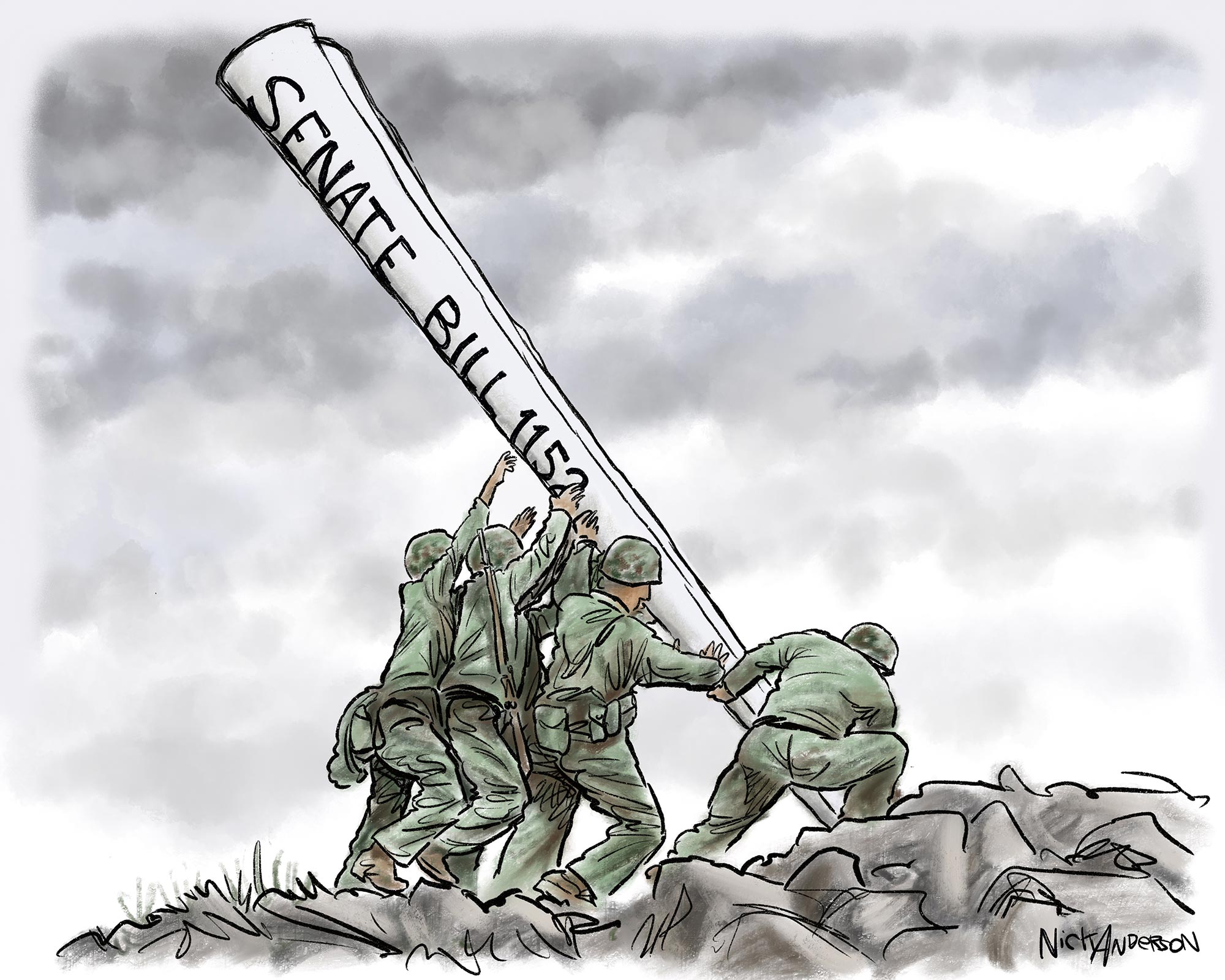
Voter Suppression - Senate Bill 9
The City of Houston supported the goal that Sen. Bryan Hughes has called the "heart" of Senate Bill 9: having a paper backup for recount purposes in elections. Had the bill been limited to this provision, it would have attracted wide support.
However, SB 9 threatened to make it harder for some people to vote by mail, for disabled voters to receive assistance, and would have required people giving rides to the polls to sign sworn affidavits. The City of Houston opposed these measures.
Several provisions were both unnecessary and suppressive in their effects, including:
- Expanding the ability of the Secretary of State to share personal information, including social security numbers and birth dates, was questionable at best, especially given recent abuses (see Secretary of State actions below).
- Escalating the penalty for mistakes on a voter registration form from a Class B misdemeanor to a state jail felony.
- Adding needless obstacles regarding the person providing transportation for curbside voting. This fails in any way to recognize the practical application in delays this would cause. The Metropolitan Multiservice Center (MMSC) has served as the busiest early-voting location in Harris County for over a decade. The MMSC is the headquarters for the Houston Parks and Recreation Department's Adaptive Recreation Section. This provision could create significant delays in an already busy city facility.
Houston joined with Disability Rights Texas, the Texas Civil Rights Project, and the League of Women Voters in opposing this bill.
The bill passed the Senate 19-12 but failed to reach the House floor before Sine Die.
# Texas Secretary of State's Action
In January of 2019, the acting Secretary of State of Texas, David Whitley, sent out an advisory that recommend counties investigate a list of people who were registered to vote, but who were not citizens when they once obtained a driver's license. As many as 95,000 people statewide were slated for an arbitrary demand that they prove their citizenship. The State's advisory recommended they be removed from the voting rolls if they didn't provide proof of citizenship within thirty days.
The City of Houston is the most diverse city in America. Houston draws strength from diversity and takes pride in the ability to attract people from all over the world. One out of every four Houstonians is foreign born. Houston is a global community. Many friends, coworkers and neighbors are legal immigrants and naturalized citizens. They likely chose Houston, at least in part, for its ability to absorb and celebrate many cultures. The Secretary of State's policy undermined our very identity and served to frustrate the considerable progress made in creating a thriving, prospering metropolis.
More than 50,000 people a year become U.S. citizens in Texas. There is nothing suspicious about an individual being registered to vote even though he or she was once listed as a non-citizen -- as far back as 1996. It stands to reason that the vast majority of these people were simply among the hundreds of thousands who have become naturalized U.S. citizens.
These actions by Texas Secretary of State David Whitley and Attorney General Ken Paxton placed Houston voters --- who had followed every federal and state procedure for voter registration --- under suspicion of violating election laws. They were essentially being asked to prove their own innocence and would have had have a constitutional right taken away if they didn't comply within a short time frame. Disenfranchising naturalized U.S. citizens based on inaccurate, outdated, and arbitrary data is wrong.
State officials had to acknowledge widespread errors in their initial list of 95,000 names. More than 60 percent of the 30,000 names supplied to Harris County were removed within days of its announcement. Mayor Turner referred to the process as "manifestly slapdash."
The Secretary of State's policy degraded the very people who had worked so hard to meet our citizenship requirements and play by the rules.
The Secretary of State's office ultimately reversed course on the controversial policy. David Whitley was not confirmed by the Senate as Secretary of State due to the bungled voter-purge attempt. He resigned his office on Monday, May 27, the last day of the legislative session.
